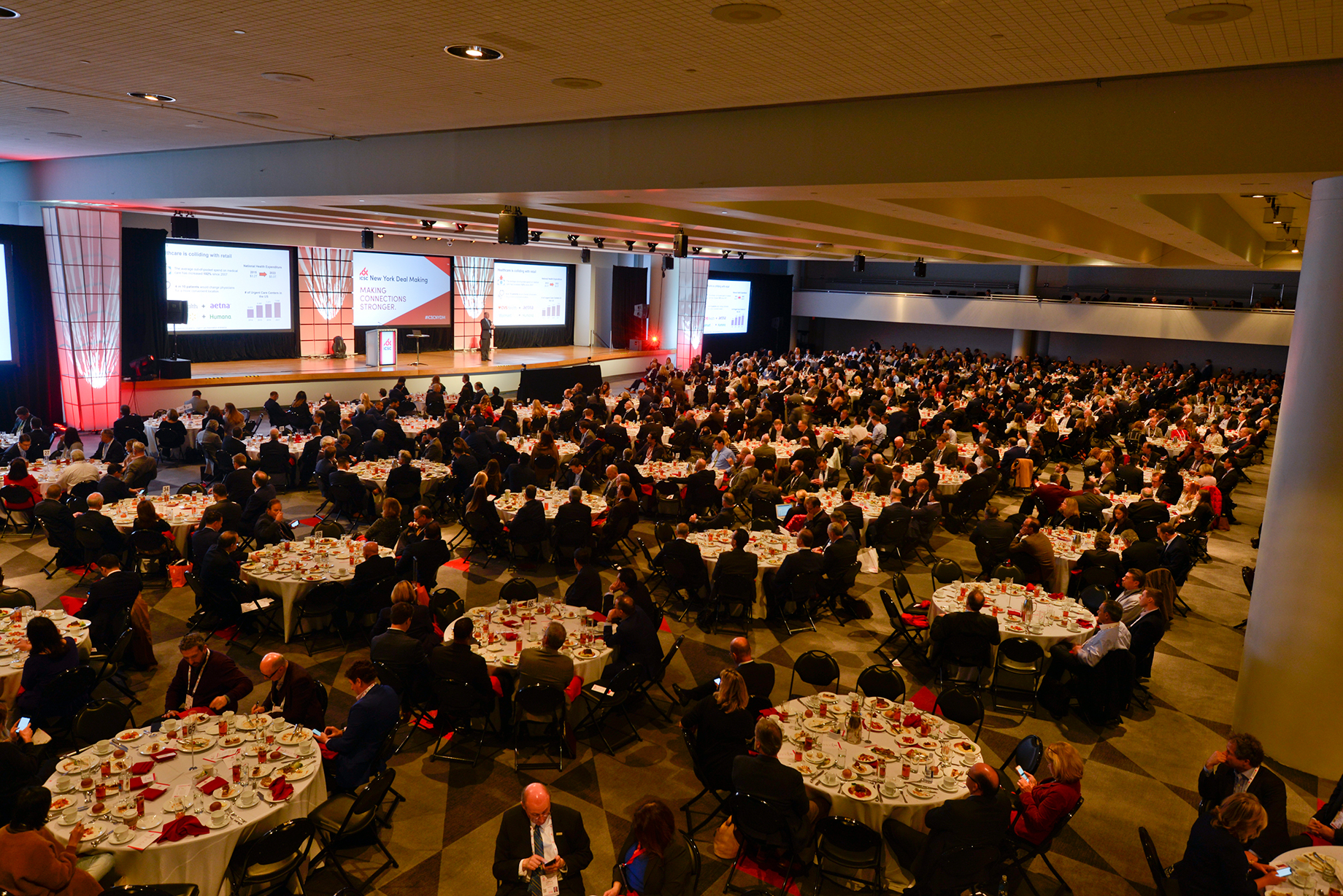Physical retail will survive and thrive, but most important, it will evolve, said Doug Stephens, founder of Retail Prophet and keynote speaker at ICSC’s New York Deal Making.
“Physical retail is not over,” Stephens said. “Amazon’s not going to eat the world.”
The store is morphing into media, observed Stephens. “The store is becoming the most powerful and manageable part of the media,” he said. “We have to start thinking of stores as places with experiences to distribute products.”
To succeed, the stores of the future will need to be engaging, unique, personalized and surprising, and they will have to provide experience that is repeatable, asserted Stephens. Retailers in the future will be more focused on creating stories than building stores, he said. “Great brands know it’s less about products and more about productions. It’s less about inventory and more about inspiring users to use our products.”

To succeed, the stores of the future will need to be engaging, unique, personalized and surprising, and they will have to provide experience that is repeatable
Citing the Starbucks “vendi” and “grande” lingo as an example, Stephens recommended using brand-specific language: “Great brands break the script with the languages they use.” Retailers should also pay lots of attention to how they make their customers feel, he said. “Great brands personalize the experience — personalize the experience so it feels just about you. We’re now in the realm of hyper-personalization.”
As for surprise, London’s posh Selfridges department store created one by building a skateboard bowl at its Oxford Street flagship. Similarly, a multilevel Gucci in Florence, Italy, charges admission for certain areas of the store.
The most important element seen at a successful store is repeatability, Stephens argued, drawing comparisons to Broadway plays. “Successful stores talk about retail like theater,” he said. “Their 'cast' — or staff — puts on a show every day.”
Experience is particularly important when catering to Millennials, Stephens noted. “Millennials value the experience of buying a product more than the product itself. Three out of four Millennials would rather spend $100 on an experience than [on] a product.”
Times being what they are, Stephens raised this point: “Are your spaces selfie-worthy? If not, it’s going to be a big problem over the next decade or so.”


